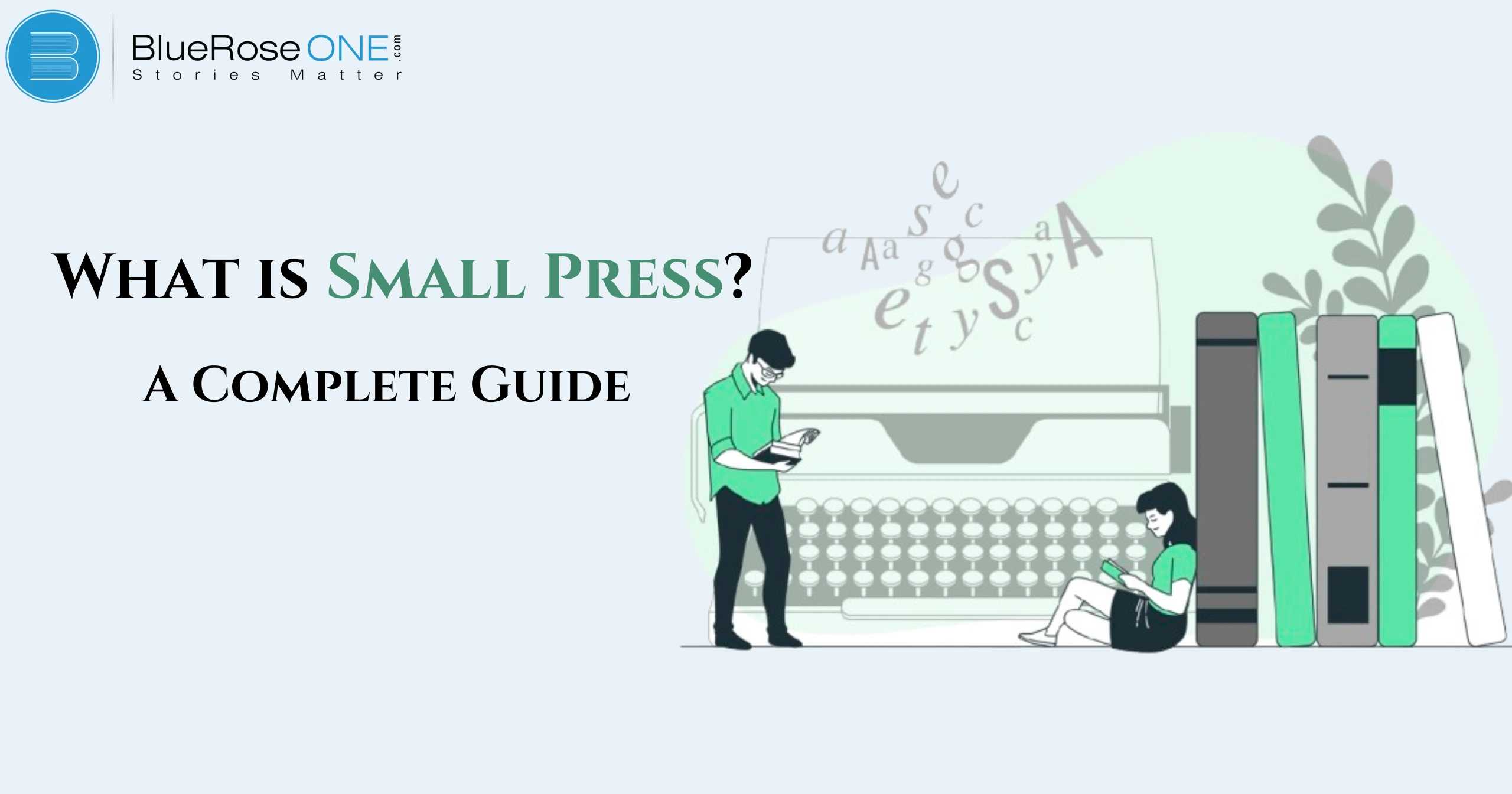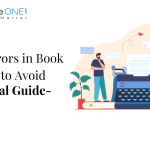Ever wonder how authors manage to get their novels published in venues other than major publishing houses? Discover the world of publishing with small presses! Small presses provide a distinctive venue for upcoming and experimental writers to bring their work in front of readers, much like independent cinema does in the publishing industry. However, what precisely is a small press, and how is it different from the massive traditional publishers?
We’ll walk you through every aspect of tiny presses, including their background, function in the literary community, and if it’s the best route for your work, in this guide.
What Qualifies as a Small Press?
As the name implies, tiny presses are publishing houses that function on a smaller scale than conventional publishing businesses. They usually target particular markets or niches and release fewer titles annually.
General Criteria
Small presses usually:
- Publish fewer than 50 books per year.
- Have limited resources compared to major publishers.
- Focus on specialized or niche genres, like literary fiction, poetry, or specific sub-genres.
Small Press vs. Traditional Publishing
Traditional publishing is not the same as small press publishing in numerous significant respects. While small presses take chances on more unusual, diverse perspectives, traditional publishers frequently concentrate on mass-market appeal.
Key Differences
- Size: Traditional publishers operate on a large scale, with vast marketing resources. Small presses focus on a specific community or genre.
- Creative Control: Small press authors often retain more creative control, while traditional publishers may require more changes to suit their commercial goals.

Advantages of Small Press Publishing
Choosing to publish with a small press comes with several unique benefits.
Personalized Attention
The individualized attention authors receive from small press publishers is one of its main benefits. Little press publishers frequently collaborate directly with authors, providing specialized help and direction throughout the publishing process, in contrast to giant publishing firms where authors may feel like just another number.
Because the author may contribute more freely and creatively with this hands-on approach, their vision is acknowledged and recognized, which makes the finished product more genuine and one-of-a-kind.
You may also read: About the Author Sudha Murthy: Inspiring Life and Literary Legacy
Niche Market Opportunities
Targeting niche markets is one of the main benefits of publishing with small presses. Small presses frequently concentrate on niche markets or unusual subjects that larger publishers would miss.
They are able to serve niche markets as a result, attracting devoted readers who are enthusiastic about these topics. In a congested publishing market, small press publishers can differentiate themselves by embracing niche niches and forging close relationships with their readership.
Creative Freedom
The creative freedom that small press publishing affords authors is one of its main benefits. Small presses give authors the freedom to try out novel concepts, genres, and forms, in contrast to larger publishers who frequently enforce rigid standards.
This independence encourages more individualized and unique works by allowing authors to keep their voice and vision. Small presses offer a venue where creativity can flourish for people looking to escape the financial limitations of traditional publication.
You may also like: List of Top 10 Famous William Fauklner Books of All Time
Challenges of Small Press Publishing
While small presses offer unique opportunities, they also come with challenges.
Limited Resources
Handling scarce resources is one of the largest problems facing small press publishers. Small presses, in contrast to big publishing houses, frequently employ fewer people, have less budgets, and have less access to marketing and distribution resources. It could be challenging to compete in the wider publishing market as a result.
Slower sales growth may result from small presses’ inability to successfully promote their writers and publications. Despite these obstacles, a lot of small presses succeed by concentrating on specialized niches and developing strong bonds with their readers.
Marketing and Distribution
The marketing and distribution of small press publications is one of the main obstacles. Small presses, in contrast to larger publishers, frequently have tighter finances, which makes it more difficult to widely promote their publications. It could be difficult for them to get their books into big-box retailers or to land prominent positions on internet sites.
Small presses can’t be noticed and reach a larger audience without significant brand recognition, so they have to rely on word-of-mouth marketing, grassroots efforts, and fostering links with niche communities.
Financial Constraints
Financial limitations are one of the main issues small press publishers deal with. Small press operations, in contrast to larger publishing houses, usually have limited funds, which makes it challenging to invest in superior production, marketing, and distribution.
Smaller print runs and decreased author visibility can result from a publisher’s inability to compete in the market due to these budgetary constraints. Furthermore, a lot of small press publishers depend on loans or personal funds, which raises the business’s financial risk.
Types of Small Presses
Small presses come in different shapes and sizes, specializing in various genres and literary styles.
Literary-Focused Presses
A tiny press with a literary bent that publishes books of exceptional creative and literary value. These publishers encourage writers whose work might not fit into the mainstream of commercial publishing by concentrating mostly on poetry, short tales, and experimental fiction.
Literary small presses are renowned for supporting distinct voices and avant-garde writing techniques while giving both seasoned and up-and-coming authors a platform. They are essential to maintaining the diversity of the literary environment by providing readers with engaging and imaginative works.
Genre-Specific Presses
Small presses that specialize in publishing works in specific genres, including science fiction, romance, or horror, are known as genre-specific publishers.
These presses provide specialized content that larger publishers would ignore in order to cater to niche consumers. These tiny publishers focus on particular genres in order to build a devoted fan base and offer more focused marketing. Working with a small press that specializes in a particular genre can help authors become more visible within that field and build relationships with devoted readers.
DIY and Zine Presses
Popular small presses that emphasize independent distribution and self-publishing are DIY and zine presses. Homemade presses frequently manage every stage of the publishing process in-house, including writing, printing, and distribution. Small, independently produced publications or booklets, frequently examining specialized subjects or novel formats, are the specialty of zine presses. By enabling authors to communicate directly with their audience and forego conventional publishing channels, these kinds of publications uphold the independent and imaginative spirit of the small press community.
How to Get Published with a Small Press
Wondering how to submit your manuscript to a small press? Here’s a step-by-step guide:
Researching the Right Press
When looking for a publisher for your book, it’s critical to concentrate on small presses that fit your subject and intended readership. Compared to larger publishers, small presses may provide more individualized attention and frequently specialize in niche markets.
Seek out presses that have a good track record of published books, favorable reviews from authors, and a reputable reputation. You can improve the likelihood of a successful publication and dissemination of your book by carefully choosing a small press that complements the themes and style of your writing.
Submission Guidelines
Knowing the submission requirements is essential if you want to publish with a small press. Manuscripts submitted to small publications are often subject to certain rules about formatting, word count, and genre. The press’s website or submission portal has a thorough description of these rules.
Your chances of being accepted can be greatly increased by carefully adhering to these directions. To stand out in a crowded field, make sure your application is customized to each small press’s requirements and includes a well-written query letter and summary.
Manuscript Preparation
Make sure your manuscript satisfies the small press’s unique submission requirements when getting it ready for publication. Specific specifications for file type, word count, and formatting are frequently required by small presses. A well-written manuscript ought to be error-free, flawless, and well-organized.
Provide an overview of your book and an engaging cover letter. Adapting your work to the specific requirements of each tiny newspaper demonstrates professionalism and boosts visibility. Recall that leaving a lasting impression requires delivering a polished manuscript.
Is Small Press Right for You?
Take your writing objectives into consideration before determining whether to go after small press publishing. Which would you prefer: the greater reach of a traditional publisher, or creative freedom and specialized audiences?
Consider Your Book’s Genre and Audience
A small publisher may be the best fit for your book depending on its genre and intended readership. Small publishers could be a perfect option if your book is targeted at a certain readership because they frequently concentrate on niche markets and particular genres.
A small press might do particularly well, for instance, in literary fiction, fantasy, or works from the region. Selecting a small press that fits your book’s specific requirements and objectives can be made easier if you are aware of the genre and target audience.
Understanding Your Publishing Goals
It’s critical to comprehend your publishing objectives prior to determining whether a tiny press is the best fit for you. What kind of publishing experience do you want more creative control, a specialized readership, or something more? Small presses provide more individualized attention than larger publishers, and they frequently cater to writers who choose quality over quantity.
If maintaining artistic autonomy and fostering long-term relationships are important to you, a small press could be a better fit for your objectives than a conventional, larger publisher.
The Role of Small Presses in the Literary Community
Small presses are vital to the literary world’s diversity because they publish voices that larger publishers might pass on.
Encouraging Diversity in Voices
In order to promote a range of voices in the literary world, small presses are essential. Small presses, as opposed to major publishers, frequently concentrate on identifying and advancing marginalized writers and distinctive viewpoints.
This dedication highlights voices who might not otherwise be heard and enables readers access to a greater variety of stories. Small presses play a critical role in increasing the diversity of voices in literature by elevating varied tales, which enhances the literary landscape and makes it more inclusive and rich.
Promoting Underrepresented Genres
In order to encourage underrepresented genres in the literary world, small presses are essential. Small presses, in contrast to larger publishers, frequently possess the freedom to investigate specialized genres and voices that might otherwise go unnoticed.
They actively search for original and varied stories, giving underappreciated genres a stage. Small presses contribute to the expansion of the literary scene and provide readers with fresh and intriguing viewpoints by supporting these overlooked genres. Their vital contribution to a publishing industry that is more inclusive is highlighted by this commitment.
How Technology is Shaping Small Presses
Technology has dramatically changed the publishing landscape, and small presses are no exception.
Print-on-Demand Services
Because print-on-demand services minimize risk and cut upfront costs, they have completely changed the way small presses operate. Rather than producing books in bulk, tiny presses are now limited to producing copies per request. Small press publishers can now offer a greater selection of titles without worrying about having too much inventory thanks to this technology.
It also assists publishers and authors in cutting waste and streamlining the publishing process, increasing accessibility for independent producers.
E-Books and Online Platforms
Small press publishing has been greatly impacted by technology, particularly with the advent of e-books and online platforms. Thanks to the distribution of e-books on sites such as Apple Books, Smashwords, and Amazon Kindle, small publishers now have greater access to readers.
Small presses can now reach a worldwide audience without incurring the heavy expenses of producing and transporting physical books thanks to these services. E-books also provide for more flexibility in terms of advertising and pricing, which helps small presses stay competitive in a continuously changing digital market.
Conclusion
To sum up, tiny presses present a distinctive avenue for writers who want access to niche audiences, individualized attention, and creative freedom.
They are essential in advancing underrepresented genres and varied viewpoints, despite facing obstacles like scarce marketing funds and limited reach. The modern publishing landscape allows tiny presses to survive and grow by utilizing technological innovations such as e-books and print-on-demand. Small press publishing can be the best option for authors who want to connect with niche audiences and emphasize creative independence.
















